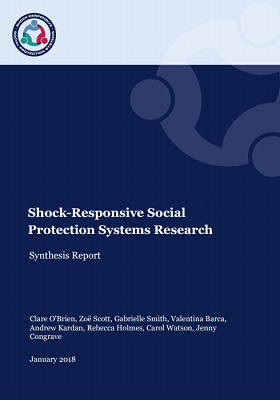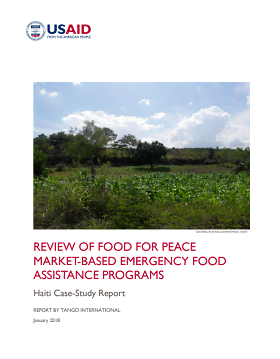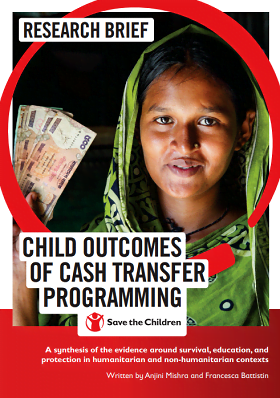Coordinación
Una coordinación sólida puede evitar vacíos y duplicaciones en las respuestas humanitarias, así como garantizar que los PTM complementen otros tipos de asistencia. Sin embargo, el informe del «Estado Global de los Programas de Transferencias Monetarias» de la CALP Network muestra que la coordinación de la asistencia en efectivo es vista como débil y ad hoc, y que esto está teniendo graves repercusiones operativas.
Los donantes, las ONG y los líderes de los grupos de trabajo de transferencias monetarias (GTM) han pedido claridad sobre tres temas principales relacionados con la coordinación de la asistencia en efectivo:
- Quién debe ser responsable de asegurar una coordinación eficaz de la asistencia en efectivo;
- Cuál es la función y el mandato de los grupos de trabajo de transferencias monetarias, incluso en relación con las transferencias monetarias multipropósito;
- Cómo se debe dotar de recursos a la coordinación de asistencia en efectivo.
Tenemos que basarnos urgentemente en lo que funciona y proporcionar claridad a nivel mundial sobre las preguntas arriba mencionadas, adaptándonos a los diferentes contextos. Hace mucho tiempo que se deberían haber tomado decisiones claras basadas en necesidades operativas y no en la política de las agencias.
Prioridades actuales
El objetivo de la CALP Network es contribuir a seguir progresando en este tema en tres niveles: apoyar a los grupos de trabajo de transferencias monetarias a nivel regional; contribuir a soluciones prácticas para la coordinación de la asistencia en efectivo a nivel mundial; y convocar una discusión basada en la evidencia sobre temas clave, destacando puntos de decisión críticos y oportunidades de progreso.
Contenido destacado

Cash Coordination Tip Sheet
Guidelines and Tools
This tip sheet sets out established best practice, key guidance and resources for all aspects of cash coordination, intended as a clear, accessible and action-oriented guide for those engaged in coordination of cash and voucher assistance (CVA) at the field level.

Introducing the Cash Coordination Tip Sheet
Webinar
The CALP Network has developed a tipsheet setting out established best practice and key guidance and resources for all aspects of cash coordination, intended as a clear, accessible and action-oriented guide for those engaged in coordination of cash and voucher assistance at the field level.

Cash Coordination: A proposal from members in MENA
Blog Post
Earlier this year the CALP Network undertook regional consultations to explore options for cash coordination. This blog lays out recommendations from participants from the Middle East and North Africa who sketched out what cash coordination, and coordination more broadly, could look like in future to support a more effective, efficient and accountable response.
Últimos recursos

Children in Indonesia: An analysis of poverty, mobility and multidimensional deprivation
Report
This report by Indonesia’s Central Bureau of Statistics and the United Nations Children’s Fund (UNICEF) with technical support from Development Pathways investigates the incidence, causes and effects of child poverty and poverty dynamics in Indonesia, and explores alternative policy options for...

Assessment of the Geographical and Community-based Targeting of WFP’s Cash and Food for Assets Programme in Kenya
Report
This report provides an in-depth assessment of the targeting mechanisms used for the cash and food for assets programme by the World Food Programme (WFP) and the National Drought Management Authority (NDMA). Assessment of the Geographical and Community-based Targeting of WFP’s Cash and Food for Assets...

Measuring Cash Transfer Programming – Scoping study – Executive Summary
Report
This is the Executive Summary of the study. The full report can be also be accessed through the library.

A Meeting of Cash Working Group Leads: Learning, ideas and recommendations from Burundi, Ethiopia, Kenya, Malawi, Somalia, South Sudan, Sudan, Uganda, Zimbabwe and the Southern Africa Regional Group
Report
Cash Working Group (CWG) leads representing 10 CWGs from East and Southern Africa (nine country-based and one regional) met in Nairobi on 3-4 October 2018 to discuss lessons learned, share challenges and propose solutions. This report includes thoughts and recommendations related to managing CWGs; ideas...

Review of Food for Peace Market-Based Emergency Food Assistance Programs: Democratic Republic of Congo Case Study Report
Report
The Democratic Republic of Congo (DRC) case illustrates the complexity and diversity of contexts within which program design and implementation occurs. It highlights the need for provincial-scale assessments, local market monitoring, and flexibility to pivot to different modalities depending on changing...

Shock Responsive Social Protection Systems Research: Synthesis Report
Report
This synthesis report consolidates the evidence and lessons learned from the research, drawing on all the case studies and other outputs, including the literature review as well as policy briefs on systems development and monitoring and evaluation. It highlights the key ways in which social protection...

Transfer Values in Kenya’s National Social Security System
Report
This report, commissioned by the World Food Programme (WFP) and United Nations Children’s Fund (UNICEF) seeks to examine the current transfer values of Kenya’s tax-financed social security schemes and assess whether they are set at an appropriate level. Transfer Values in Kenya’s National Social...

Cash-Based Programming in South Sudan
Report
This rapid review provides a synthesis of evaluations and learning reviews of cash-based programming in South Sudan. There is evidence that in South Sudan the cash-based programming help poor households address food needs and nutrition; and by injecting funds from vouchers, paid work, or grants into the...

Lessons Learnt and Recommendations for Cash-for-Shelter Programmes in the Democratic Republic of Congo
Report
This document provides an overview of how cash and voucher assistance is being used by shelter partners in DRC and details the lessons learnt to-date. It goes on to put forward recommendations and opportunities to strengthen cash and market-based programming in the shelter/housing sector there. An...

Review of Food for Peace Market-Based Emergency Food Assistance Programs: Haiti Case-Study Report
Report
Haiti is a very low-income country with a degraded ecological setting that faces repeated threats from multiple hazards. It is an excellent example of Food for Peace (FFP) linking emergency and development funding through the Kore Lavi Title II program that serves as a model for the national social...

A Meeting of Cash Working Group Leads: Sharing Experiences and Learning from Burundi, Ethiopia, Kenya, Madagascar, Tanzania, Somalia, South Sudan, Sudan and Tanzania
Report
Cash Working Group (CWG) leads from nine countries came together to share experiences and learn from one another. This report brings together observations and reflections from the meeting. It provides insights that are likely to be of interest to anyone involved in CWGs or discussions about the...

Child Vulnerability and Social Protection in Kenya
Report
Kenya’s Social Protection Secretariat has highlighted new evidence showing the need for a universal child grant for Kenyan children. The evidence in Child Vulnerability and Social Protection in Kenya highlights that targeting social protection at orphans, 7.5% of Kenya’s children, with a Cash Transfer...

Reflecting on the 2017 Drought Response and Cash Coordination in Kenya
Report
This report brings together thoughts and reflections on the use of cash in the drought response in Kenya in 2017/18 and consider how cash coordination might be strengthened in future. These are from a half day learning event organised by the CALP Network in liaison with the Chair and Co-Chair of the Kenya...

Marco de Información de Mercado
Guía y herramientas
Este marco tiene como objetivo desmitificar y simplificar el análisis de mercado centrado en la emergencia al (1) explicar de manera clara las preguntas más comunes relacionadas con la programación de la respuesta humanitaria para lo cual se necesita información del mercado; (2) indicar qué tipos de...

Reviewing the Linkages between Gender, Market Assessments and Market-based Interventions
Report
From ‘Collected Papers on Gender and Cash Transfer Programmes in Humanitarian Contexts’. Existing gender inequalities mean that disasters and conflicts impact women, men, girls and boys differently. Cash based assistance is one of the most significant developments in humanitarian assistance in recent...

Collected Papers on Gender and Cash Transfer Programmes in Humanitarian Contexts
Report
Existing gender inequalities mean that disasters and conflicts impact women, men, girls and boys differently. Cash based assistance is one of the most significant developments in humanitarian assistance in recent years. But the relationship between gender and cash based assistance in humanitarian contexts...

Review of Food for Peace Market-Based Emergency Food Assistance Programs: Jordan/Turkey Case Study Report
Report
Syria regional crisis: The response to the Syria regional crisis exemplifies the challenges and opportunities involved with delivering food assistance in a widespread, largely urban refugee and internally displaced persons (IDP) crisis affecting middle-income countries. This case study focuses on...

Proposed strategic approach and work plan : January – December 2018
Guidelines and Tools
Proposed strategic approach and work plan : January – December 2018

Child Outcomes of Cash Transfer Programming: Research Brief
Report
Humanitarian emergencies are increasing in both frequency and duration. It is evident that children bear the brunt of these situations and that these experiences have long-lasting effects on their development and future. The figures for the number of children affected by humanitarian emergencies are...

Social Accountability in the Delivery of Social Protection: Technical Guidance Note
Guidelines and Tools
How can citizens better hold social protection officials to account and ensure that they can understand their entitlements? Development Pathways’ research project on social accountability in social protection for the UK’s Department for International Development provides some answers. Social...